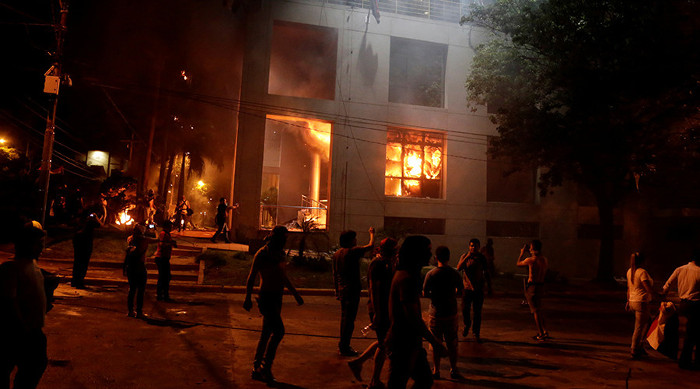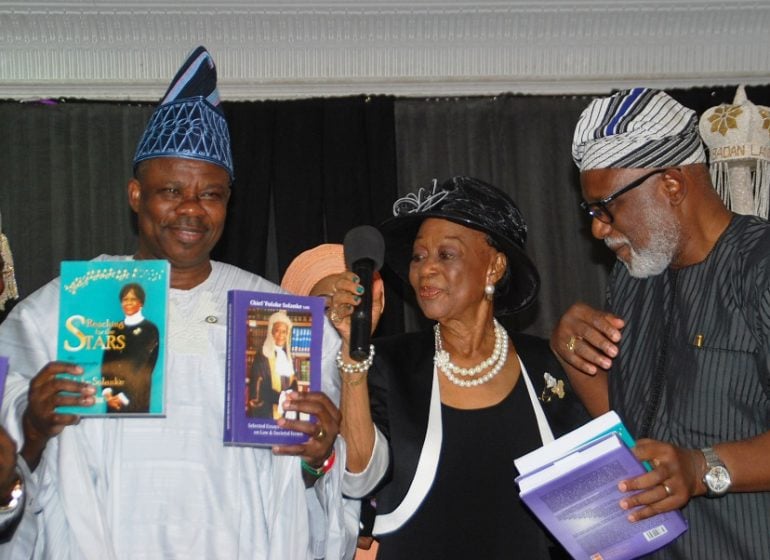Wole Olanipekun, senior advocate of Nigeria (SAN), says Ibrahim Magu, acting chairman of the Economic and Financial Crimes Commission (EFCC), was not given fair hearing before being “condemned” by the Department of State Services (DSS).
Ahead of Magu’s unsuccessful confirmation hearing at the senate, the DSS had provided the lawmakers with a report which questioned his integrity.
But the former pro-chancellor of the University of Ibadan and former president of the Nigerian Bar Association (NBA) believes Magu should have been granted the opportunity to clear his name.
Olanipekun lamented that the culture of crucifying people without trial was a growing anomaly in Nigeria.
Advertisement
Speaking on Friday while delivering a lecture entitled: “Breaking the Jinx, the Cyclical Nature of Nigeria’s Problems,” at the Ekiti State University, Ado Ekiti, Olanipekun said: “We have to be very careful in the way and manner we pronounce and crucify people in this country, without trial, and without affording them the right to be heard.”
“The right to fair hearing is inalienable, given to man by God, right from the time of creation. God gave Adam and Eve the right to fair hearing before He passed judgement on them.
“The acting Chairman of the EFCC was quoted by several national dailies as saying that he was not given fair hearing by the DSS before he was condemned of wrongdoing by them. I sympathise with Mr. Ibrahim Magu and I agree entirely with him that he ought to have been given fair hearing.
Advertisement
“But I want to plead that every tier of Government in this country, including agencies of government, including also the EFCC and the DSS, should give Nigerians the right to fair hearing in obedience to the clear provisions of the Constitution, as well as the right bequeathed to man by God. Annexed to the right to fair hearing, is also our duty, whether as government or people, to obey court orders under the doctrine of the Rule of Law.
“We cannot also hide under the pretext that we are fighting corruption or any particular vice, in refusing to obey any court order, whether in civil or criminal cases, and also including others where courts have directed that citizens should be released on bail. The Supreme Court succinctly summarized the imperative of obedience to the rule of law.”
Add a comment






